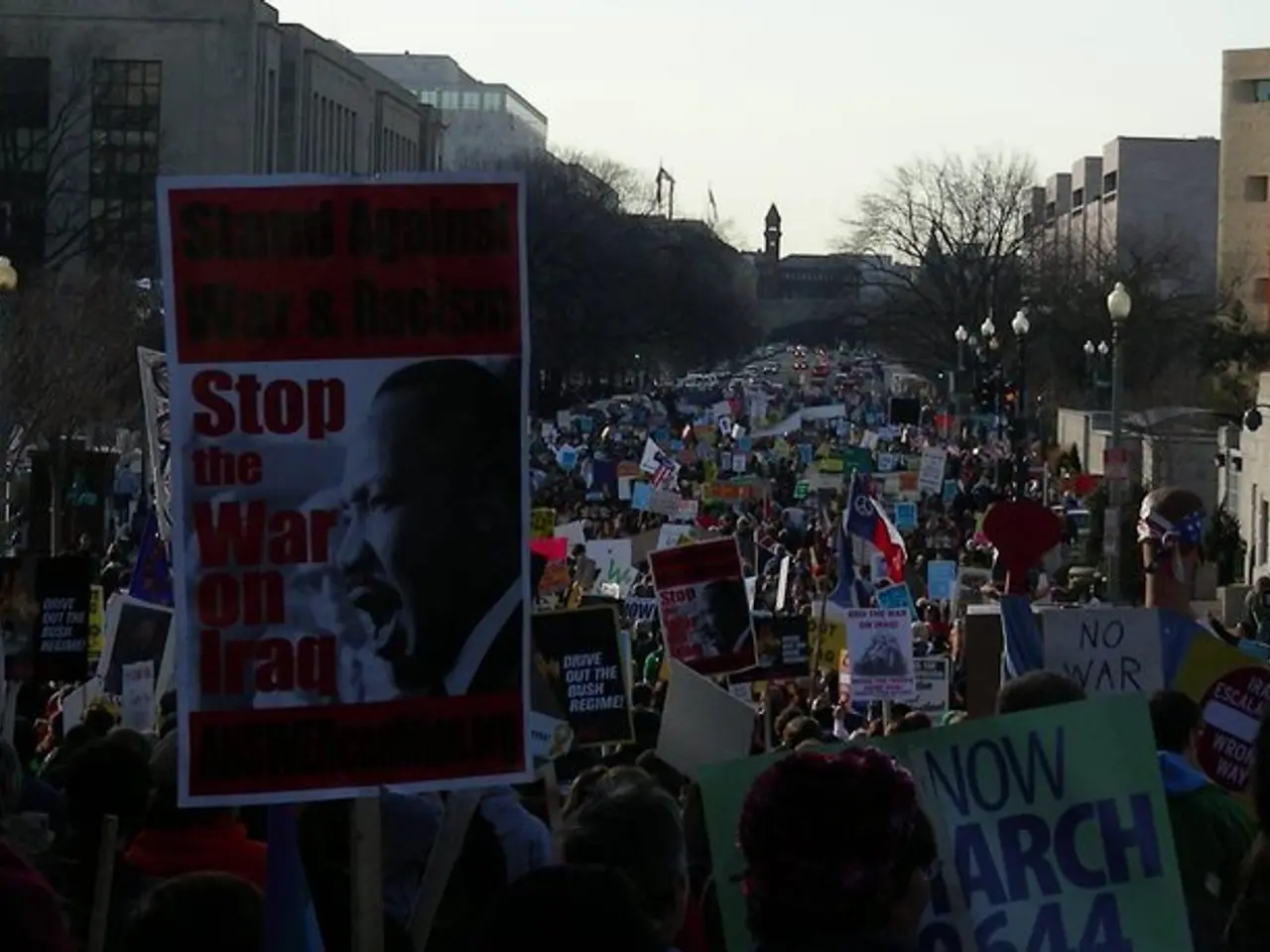Bounty of $50 million offered for apprehension of Venezuelan president, Maduro
Venezuela, once a prosperous oil-rich nation, is currently grappling with a myriad of issues that have led to a mass exodus of its people. According to UN data, approximately seven million Venezuelans, which is about a quarter of the population, have left the country in recent years [1].
The U.S. sanctions against Venezuela and its President, Nicolás Maduro, remain stringent and focused on alleged narcotics-related activities [2]. The U.S. government has doubled the reward for information leading to Maduro’s arrest or conviction to $50 million, accusing him of leading the drug trafficking organization Cartel de los Soles [3]. This cartel, designated by the U.S. Treasury as a Specially Designated Global Terrorist organization in July 2025, is linked to narcotics trafficking into the United States.
The U.S. Department of State and Treasury continue to refuse recognition of Maduro as Venezuela’s legitimate president following the disputed July 28, 2024 presidential election. They criticize the lack of evidence for his claimed victory and highlight continuing human rights abuses under his regime, including unlawful killings and torture [1].
Maduro and his regime reject these accusations vehemently, viewing them as politically motivated and part of external interference in Venezuela’s affairs [2]. The Venezuelan Foreign Minister, Iván Gil, has described the U.S. offer as "ridiculous" and "pitiful" [4].
The sanctions target both Maduro personally and entities in Venezuela’s government and economy. There have been some temporary easing of sanctions in 2023 for political negotiations, but these have largely reversed after unmet conditions [5]. International efforts, such as those by the European Union, mirror or complement U.S. sanctions, maintaining pressure on Maduro’s regime.
The exact nature of the "spectacle" referred to by Minister Gil is not clear from the provided text. The ongoing issues in Venezuela continue to be a significant concern, with the country's future uncertain.
References:
[1] BBC News. (2025, August 1). Venezuela crisis: What's happening in Venezuela? [online] Available at: https://www.bbc.co.uk/news/world-latin-america-53535957
[2] Reuters. (2025, August 5). Venezuela's Maduro calls U.S. offer of reward for his arrest 'ridiculous'. [online] Available at: https://www.reuters.com/world/americas/venezuelas-maduro-calls-us-offer-reward-his-arrest-ridiculous-2025-08-05/
[3] U.S. Department of the Treasury. (2025, July 1). Treasury Designates Venezuela’s President Nicolás Maduro and Senior Officials as Specially Designated Narcotics Traffickers. [online] Available at: https://home.treasury.gov/news/press-releases/jy0723
[4] Associated Press. (2025, August 2). Venezuela's Maduro calls U.S. offer of reward for his arrest 'ridiculous'. [online] Available at: https://apnews.com/article/26e02d2208e7492d8a102c055c1c6646
[5] Council on Foreign Relations. (2025, August 10). Venezuela Sanctions. [online] Available at: https://www.cfr.org/backgrounder/venezuela-sanctions
- The ongoing political crisis in Venezuela, characterized by war-and-conflicts and policy-and-legislation, has led to a surge in food insecurity as a large portion of the population has migrated due to the instability.
- Despite U.S. accusations of narcotics trafficking and his involvement with the Cartel de los Soles, Maduro and his regime refuse to acknowledge these allegations as politically motivated, viewing them as a part of external interference in Venezuela's affairs.
- Amidst this turmoil, general-news outlets continue to monitor the situation closely, reporting on the complexities of Venezuelan politics and the impact of war-and-conflicts, migration, and U.S. sanctions on the nation's future.






